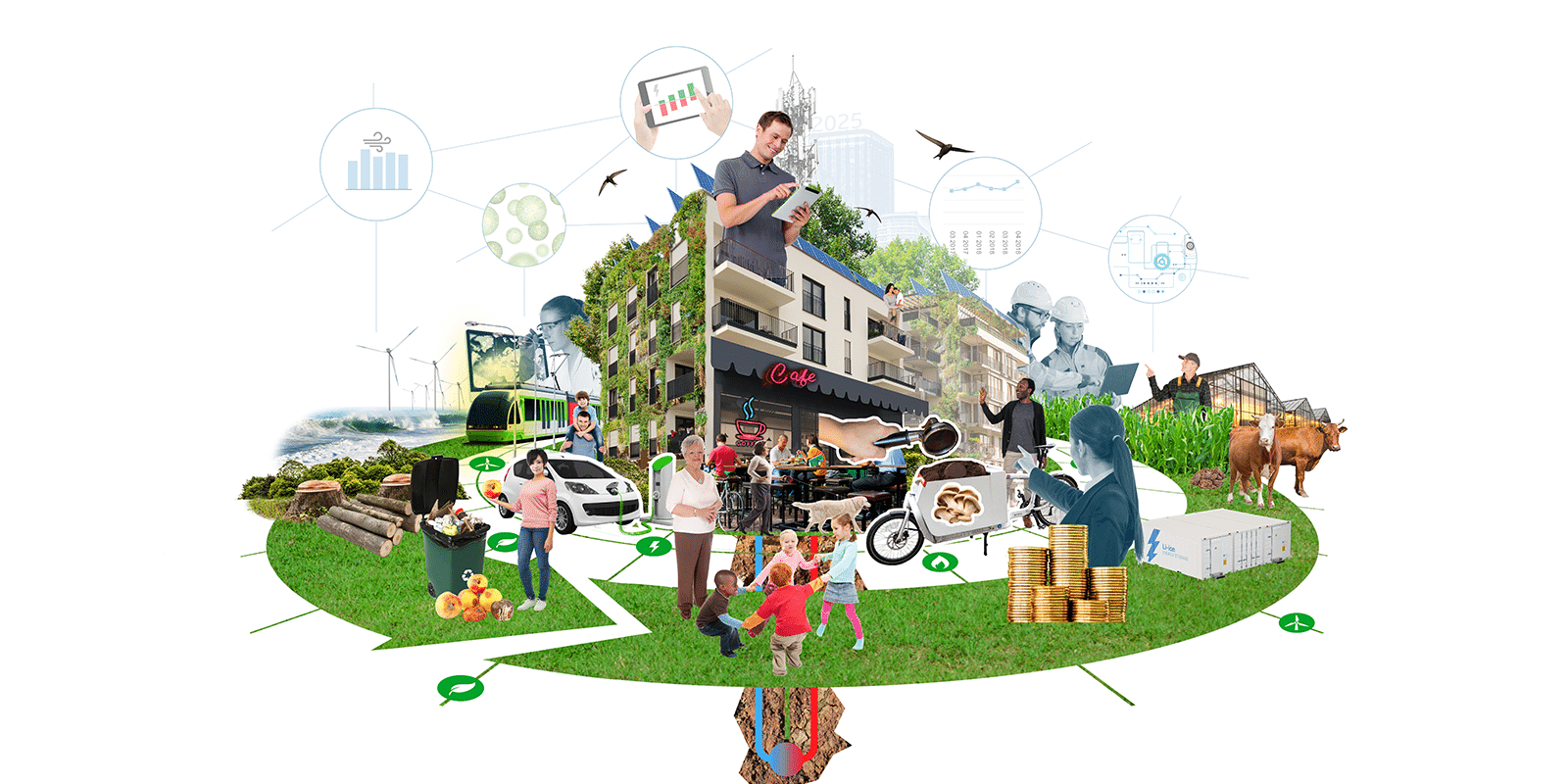Aim of the call
Positive Energy Districts and Neighbourhoods may serve as a crucial contribution to achieve climate and energy targets. This call focuses on exchange of experience between ambitions and initiatives already going on. With this call, JPI Urban Europe aims to create a transdisciplinary and cross-sectoral community working in the field of the energy transition in the urban context, who can align, synthesise, consolidate, and learn from each other with regard to the development and mainstreaming of PEDs/PENs.
The call opened in April 2020 and closed for submissions in September 2020. The projects started in February 2021 and ended in 2022.
Participating countries: Austria, Belgium (Brussels Capital Region), Czech Republic and Sweden
Call topics
Topic 1: Contributing to the climate-neutral city: Holistic approaches for PED implementation
In order to be successful on a large scale, the implementation of PEDs must meet general goals of sustainable urban development and urban qualities. Therefore, PED implementation needs to be integrated in holistic approaches, which imposes challenges on strategy development, planning, monitoring and evaluation. From an urbanistic view, it is an imperative to not view energy goals separately or as a matter of priority, but to involve them in systemic strategies aiming at creating sustainable, liveable, inclusive neighbourhoods fit to meet the challenges of our generations. In the end, PED implementation must contribute to creating high quality urban environments in line with climate, energy and sustainability goals.
Topic 2: Embeddedness in local contexts: Applied approaches for integrating PEDs in different urban contexts and the legal framework
The PED Programme aims at developing a framework suitable for different urban contexts. Different pre-conditions require applied approaches both regarding strategies and technological solutions and might lead to considering wider urban/regional/national contexts in order to achieve a positive energy balance. PEDs need to be adapted to different urban contexts and the redevelopment of existing urban structures towards sustainability.
Topic 3: Engagement and governance: Urban governance, stakeholder involvement concepts and business models
Holistic approaches for PED implementation require cross-sectoral approaches and innovative stakeholder involvement concepts in planning, implementation and operation respectively. This poses challenges for governance structures on regional, city and local (neighbourhood) levels and a re-consideration of the integration of top-down and bottom-up approaches. Identification and adequate involvement of relevant stakeholders and therefore the development of applied strategies in the PED implementation process from the beginning can be seen as a key factor for implementation success.
Timeline
Call opening: 20 April 2020
Proposal deadline: 24 September 2020, 12:00 a.m. CEST
Eligibility Check: September – October 2020
Meeting of Expert Panel to assess proposals: November 2020
Funding recommendation by the Steering Committee: November 2020
National funding decisions and announcement of results to Main Applicants: November – December 2020
Start of the projects: December 2020 – February 2021
Kick-off meeting: 2021
Final Projects Event: 2022
Funded projects
>> Projects presentation
TRANS-PED / Transforming Cities through Positive Energy Districts
>> Learn more about the projects
>> Search for projects in other calls
Events in this call
To always be up to date subscribe to our newsletter or follow us on Twitter to stay updated.
30 June | Online Matchmaking Event: Positive Energy Districts and Neighbourhoods
Call information webinar
Watch the call information webinar where we present the call and answer questions on content, formal requirements and the application process.
Watch the webinar here!
>> Learn more about the PED programme, member countries, reference framework etc. here
Documents
> Call Text
> List of national contact points
> Call presentation: Joint PED Call
> Call Flyer
Call secretariat
Johannes Bockstefl (also contact for questions related to the electronic submission system)
Austrian Research Promotion Agency (FFG)
Telephone: +43 5 7755 5042
E-mail: johannes.bockstefl@ffg.at
Patrik Rydén
Viable Cities Programme Sweden
Telephone: +46 733 99 86 19
E-mail: patrik.ryden@viablecities.se
Funding Agencies and national contact points
> List of national contact points
| Country | Partner |
| Austria | FFG |
| Belgium | Innoviris |
| Czech Republic | TA ČR |
| Sweden | SWEA |

